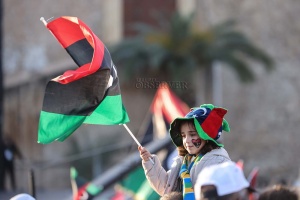By Abdullah Alkabir, political writer and commentator
The new UN initiative to resolve the Libyan crisis and its limitations

The rapid regional changes have accelerated the Western move towards Libya again, after years of political deadlock and the absence of any clear international vision towards resolving the crisis. Within a few weeks, the UN Security Council took several important decisions on several files namely; oil smuggling, partially lifting the ban on arms supplies, and allowing the management of part of the frozen assets in international financial institutions, coinciding with the issuance of secret arrest warrants by the International Criminal Court for Libyan figures, for whom the court had evidence and testimonies of committing war crimes and crimes against humanity. The UN Security Council also agreed to appoint the Ghanaian politician and diplomat Tetteh as a UN envoy to Libya.
The UN mission, headed by American diplomat, Stephanie Koury, began implementing its initiatives by announcing names of members of the Legal Advisory Committee, which is supposed to complete its work during this month, and submit its proposals to the mission on the files of election laws and the unification of the executive authority.
Immediately after the list of committee members was issued, reactions varied between skepticism, reservations and welcome. This is expected and natural due to the state of conflict, and caution against a potential trap set by major powers for influential local parties, aiming to marginalize their role, bypass them, and proceed with implementing a Western plan as developments of the conflict with Russia do not allow for postponement or slowdown, especially with Russia’s strengthening of its military capabilities by transferring more weapons to the bases it operates on Libyan territory after the fall of its ally in Syria, Bashar al-Assad.
Before the Legal Advisory Committee began its work, the United Nations published the report of the Committee of Experts, including all the disasters committed by the parties and figures active in power in the East and West of Libya. The aim of the publication is to weaken them, as they will be in the crosshairs of popular anger, with an implicit threat of possible sanctions, after the report revealed the names of those involved in smuggling oil, drugs and irregular migrants, which are not just national but international crimes because they were carried out with external parties and their impact extends beyond the borders of the Libyan state.
The committee will present its proposals regarding amendments to electoral laws, the formation of a unified government, and what should be done on the security track. Then UNSMIL will launch a national dialogue that includes a wide spectrum of all social components and political trends, to discuss and support these proposals before they are approved by the legislative authority.
As usual, the de facto authorities will work to thwart the UN plan, using the same means they previously resorted to, to undermine any project that could overthrow them or strip them of their powers. They have become more experienced than ever in evasion and procrastination, and despite the conflict, competition, and hostility between them, they may be forced to coordinate and cooperate with each other indirectly as long as there is a common goal that unites them.
However, the UN mission and the active international parties know what awaits them, and they are undoubtedly aware of the methods that the parties in power will adopt to obstruct any effort that could bring about a real solution to the crisis. Therefore, what is expected is the application of strong pressure to force them to submit, without resorting to sanctions because the recent developments have begun to threaten the interests of America and its allies and are no longer a purely Libyan affair.
The pressing question here is; what is Russia's position vis-vis this Western move? It is a politically and militarily active in Libya, and it knows that it is targeted by these measures. Therefore, it is difficult to obtain the required support from the Security Council through binding resolutions, unless an expected deal is concluded at an upcoming summit between the US President and his Russian counterpart, and this deal includes drawing up their areas of influence in Libya.
Disclaimer: The views and opinions expressed in this article are those of the writer, and do not necessarily reflect those of the Libya Observer



